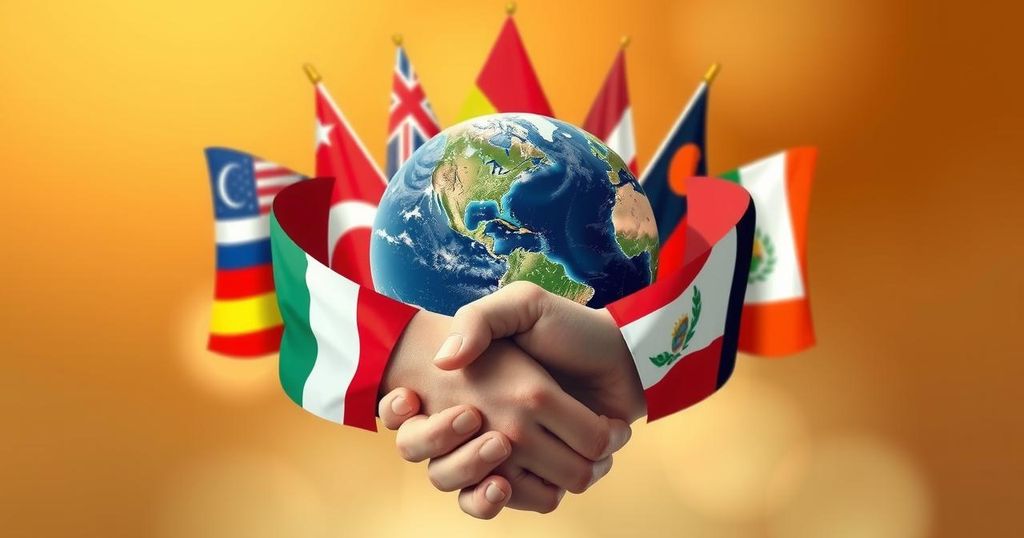Kenya’s international reputation has come under scrutiny due to its controversial engagements in Sudan and the DRC, particularly its ties with the Rapid Support Forces. Critics argue that these actions threaten the country’s status as a neutral peace broker in East Africa. Experts warn that this shift in foreign policy under President Ruto may have enduring implications for Kenya’s diplomatic standing.
Kenya’s diplomatic reputation faces jeopardy as its ties with conflict-ridden regions like Sudan and the Democratic Republic of Congo (DRC) come under increased scrutiny. The country, long viewed as a neutral peace broker in East Africa, is grappling with the fallout from its involvement with Sudan’s Rapid Support Forces (RSF), which have been accused of severe human rights violations since their conflict with Sudan’s armed forces escalated in April 2023.
The RSF, under the leadership of Mohamed Hamdan “Hemedti” Dagalo, has faced serious allegations of genocide against the populace of Darfur. Criticism mounted after Kenya extended an invitation to the RSF for discussions in Nairobi aimed at establishing a rival government, stirring outrage among international observers and Sudanese nationals.
The situation intensified following the Sudanese government’s decision to recall its ambassador to Kenya, Kamal Jabara, and publicly criticize President William Ruto for prioritizing personal interests over long-established bilateral relations. The escalating conflict has resulted in over 60,000 fatalities and millions of displacements, escalated by the deteriorating relationship between RSF Chief Hemedti and General Abdel Fattah al-Burhan of the SAF.
Renowned Kenyan policy expert, Abdullahi Boru Halakhe, characterized Kenya’s diplomatic engagements in this scenario as a significant “own goal,” which erodes the country’s reputation as a neutral party. Halakhe indicated that Kenya’s exclusion of the Sudanese government from peace dialogues has compromised its perceived neutrality, leaving the impression of alignment with a militia implicated in genocide.
This diplomatic misstep parallels a previous controversial act concerning the DRC, where Kenya hosted leaders of the M23 rebel group, further straining relations with that nation. The DRC government has previously condemned Kenyan peacekeeping troops for alleged support towards rebel factions, which some analysts interpret as indicative of a shift in Kenya’s foreign policy under President Ruto’s administration.
The emergence of these contentious relationships casts doubt on Kenya’s future role as a peacekeeping force across Africa. Traditionally seen as a neutral space for peace negotiations, particularly notable agreements in Somalia and Sudan, Kenya’s recent maneuvers have raised critical questions about its diplomatic trajectory. As stated by Halakhe, the engagement with the RSF and the strained DRC relations signify a steep degradation of Kenya’s diplomatic cachet, foreshadowing long-lasting repercussions for its international standing.
In conclusion, Kenya’s reputation as a diplomatic mediator is at substantial risk due to its controversial involvement with conflict groups in Sudan and the DRC. The current government’s actions have raised critical concerns among observers regarding its commitment to neutrality and peacekeeping. As the nation reflects on its diplomatic direction, this period proves pivotal for President Ruto in balancing domestic governance and international relations.
Original Source: eastleighvoice.co.ke






